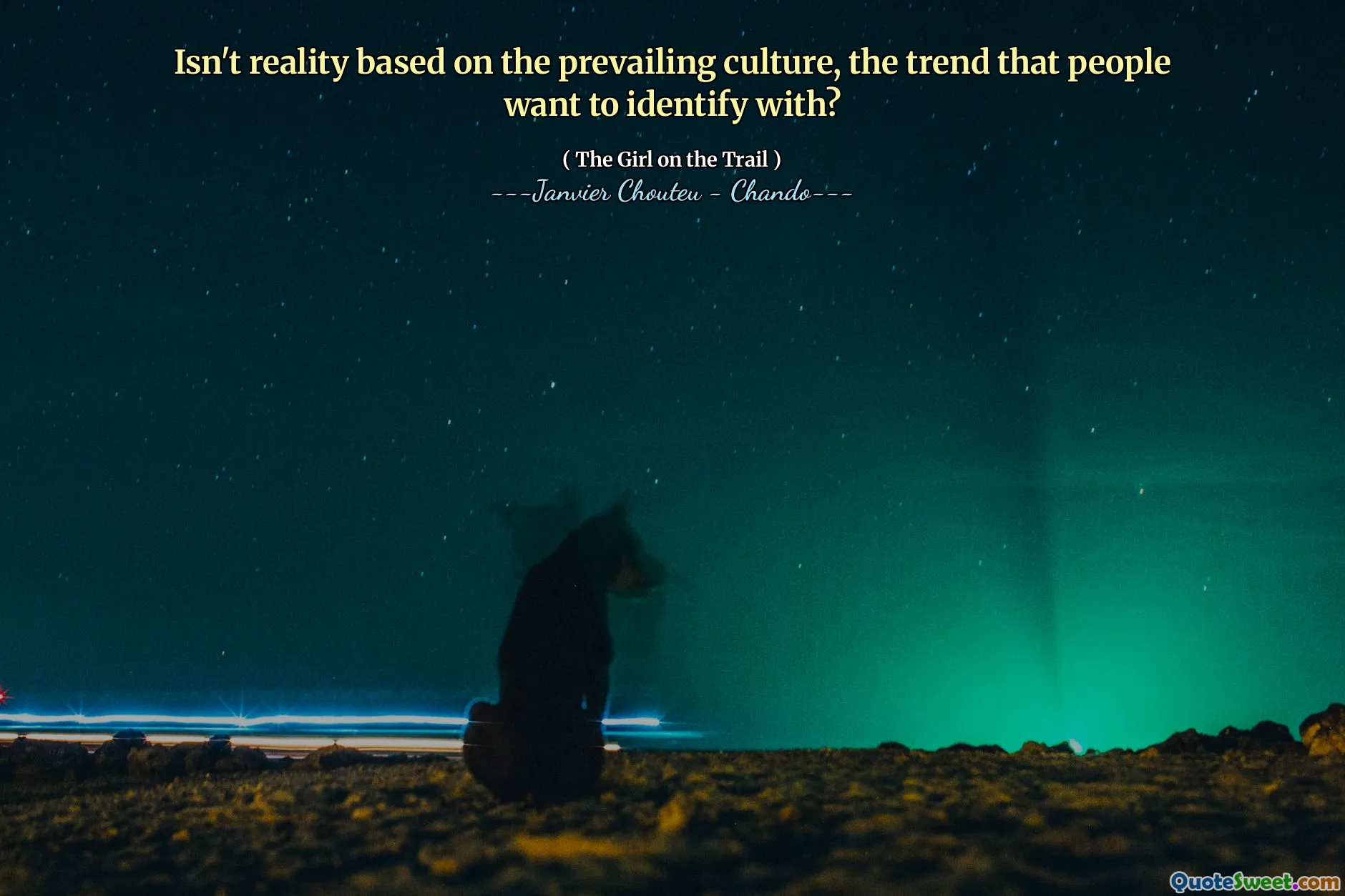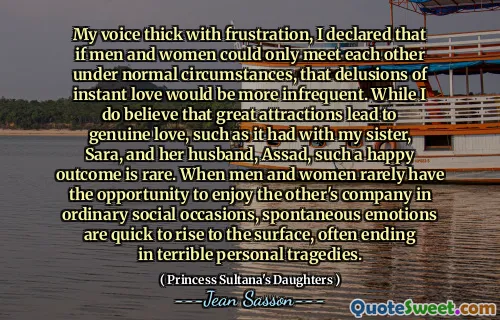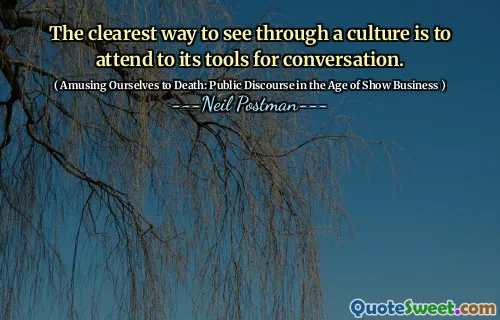
Isn't reality based on the prevailing culture, the trend that people want to identify with?
This quote raises profound questions about the nature of reality and its relationship to cultural influence. In our rapidly changing world, perceptions of what is real are often shaped by societal trends, collective beliefs, and cultural norms. The idea that reality might be subjective or fluid, influenced heavily by popular trends, challenges the notion of an objective truth. It suggests that our understanding of reality is not fixed but can be constructed or deconstructed based on what is culturally accepted or celebrated at any given time. This reflection prompts us to consider how much of our perception is genuinely intrinsic versus socially conditioned. For instance, fashion, language, values, and even history can be influenced heavily by what is trending, shaping our worldview in subtle yet impactful ways.
On a deeper level, this quote also touches upon identity formation. People often align themselves with certain trends or cultural identities to belong or find meaning. It raises awareness about the importance of critical thinking – questioning whether our beliefs are truly our own or whether they are adopted solely for social acceptance. Recognizing this dynamic encourages us to seek authenticity, to look beyond superficial trends and understand the underlying principles that sustain our perceptions of reality.
Furthermore, such reflection leads to discussions about cultural relativism and the importance of diversity in understanding reality. What is considered real or true in one culture might differ significantly in another, highlighting the importance of intercultural dialogue. Ultimately, this quote underscores the importance of self-awareness and critical engagement with the influences that shape our worldview, urging us to explore deeper truths beneath the surface of cultural trends and societal norms.






